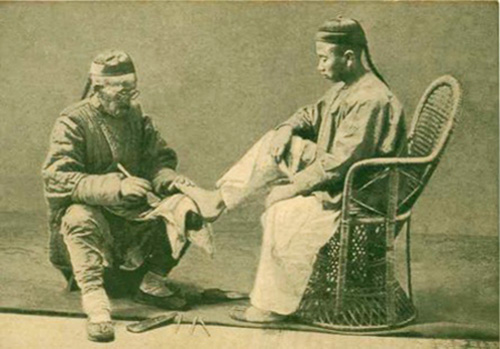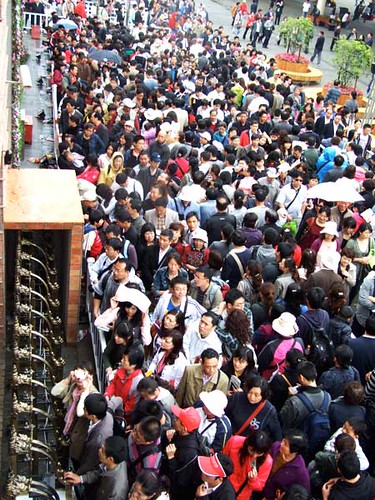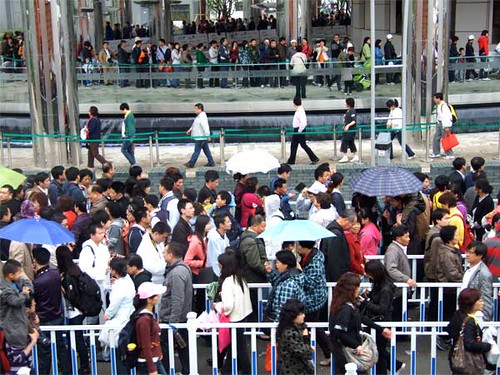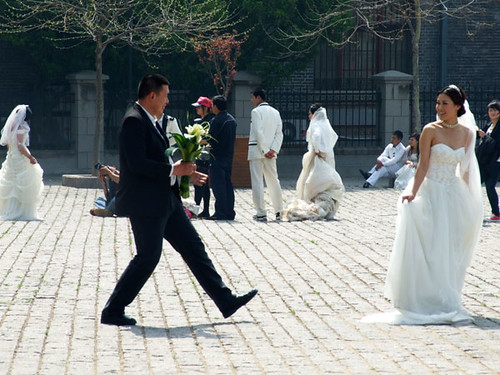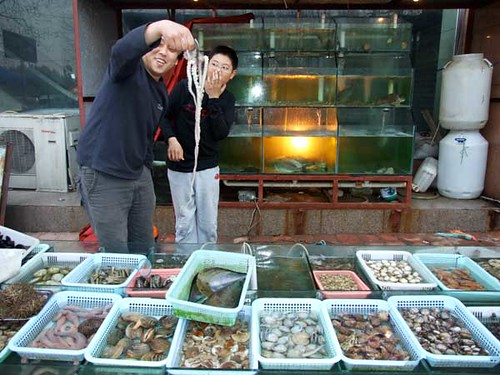This is the first installment of translations from the facebook notes of a Taiwanese exchange student in Beijing. Read my preface of sorts to these translations, here.
What I find interesting in this note is Yi-jung’s expectation that Beijing will be a world apart from Tainan, not to mention a romanticisation of pre-liberation Beijing.
•
Before going to Beijing (18.2.2010)
Travelling to Beijing, I don’t know what kind of people I will meet or what will happen. I don’t know whether I will like these people and things or not. Maybe some of them I won’t like, but I’ll just have to learn to accept them. After reading my Mainland friend’s writing, I was overwhelmed and surprised that she still remembers me. In fact, the biggest reason that motivated me to apply for exchange study in Beijing was that I wanted to meet my old friends in Mainland China again. If I just fly over there, I can certainly meet up with them again. But I really want to know what the city and society they grew up in is like.
So I think if I can stay in Beijing for a short time, maybe I’ll have the opportunity to better understand their culture. Even though we speak the same language, there are still differences between us.* I want to go and see Beijing, and see how different after all it is to the book I read once, Memories of Peking: South Side Stories, by Lin Hai-yin. I know new Beijing will not be like the book’s description of old Peking anymore; things have changed over many decades.** I’ve already mentally prepared myself, Beijing may be just like other big cities I’ve been to, with so many skyscrapers. Maybe I can only like that Beijing of my imagination, and not the real Beijing. I simply don’t know.
If you go for a stay in a city you’ve never been to before, wouldn’t you be afraid?
•
And here’s the original note (in ç¹ä½“å—, of course, her being Taiwanese):
è¡Œå‰ 2010-02-18
æ¤è¡ŒåŽ»åŒ—京,其實我無法é 知會é‡åˆ°ä»€éº¼äººï¼Œç™¼ç”Ÿä»€éº¼äº‹ã€‚我ä¸çŸ¥é“那些人事物會ä¸æœƒè®“我喜æ¡ï¼Œé‚„是也會有我ä¸å–œæ¡çš„人事物,但是我也得å¸æœƒåŽ»æŽ¥å—。看到我的大陸朋å‹å¯«çš„æ–‡ç« ï¼Œæœ‰é»žè®“æˆ‘å—å¯µè‹¥é©šï¼Œå› ç‚ºå¥¹é‚„è¨˜å¾—æˆ‘ã€‚å› ç‚ºå…¶å¯¦è®“æˆ‘æœ‰æœ€å¤§å‹•åŠ›ç”³è«‹åŽ»åŒ—äº¬å¤§å¸äº¤æ›ï¼Œæ˜¯æƒ³å†åŽ»ä¸åœ‹å¤§é™¸çœ‹çœ‹ä»¥å‰èªè˜çš„朋å‹; 如果我åªæ˜¯å°ˆé£›éŽåŽ»ï¼Œæˆ‘確實也å¯ä»¥è¦‹åˆ°æˆ‘的朋å‹ã€‚但是我更想知é“他們æˆé•·çš„城市和社會是什麼樣å。
所以我覺得我若å¯ä»¥åœ¨é€™å€‹åŸŽå¸‚待一çŸæš«çš„時間,也許我有機會更了解他們的文化。我想去看看北京,到底和我以å‰è®€éŽæž—海音寫的城å—舊事ä¸çš„北平,差別在哪裡? 其實我已經åšå¥½å¿ƒç†æº–備了,北京也許就åƒæˆ‘曾經去éŽçš„那些大城市一樣有許多高樓大廈。也許我åªå–œæ¡é‚£å€‹æƒ³åƒä¸çš„北京,而ä¸æ˜¯çœŸæ£çš„北京。我真的ä¸çŸ¥é“。
è‹¥ä½ å¾—åŽ»ä¸€å€‹ä½ å¾žæ²’æœ‰åŽ»éŽçš„城市待一陣åï¼Œä½ é›£é“都ä¸æœƒæ„Ÿåˆ°å®³æ€•å—Ž?
___
* this sentence isn’t in the Chinese above, but Yi-jung had written it in another draft.
** ditto. Yi-jung also mentions she first read the book (which is set in the 1930s) as a teenager.

